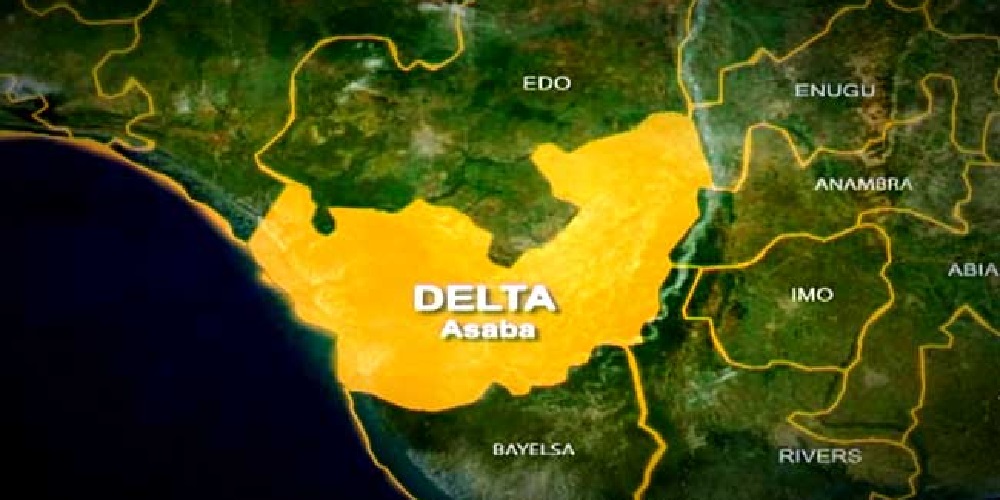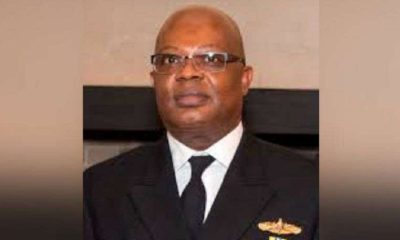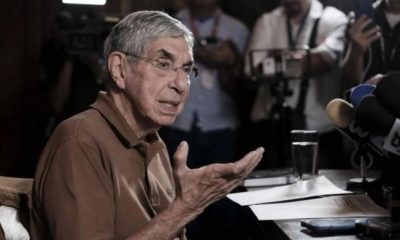News
Other underlying factors, not solely fibroid responsible for infertility – Gynaecologist

By Francesca Hangeior
Consultant Obstetrician and Gynaecologist, Dr. Abayomi Ajayi, has said that fibroid is not solely responsible for infertility, pointing out that a lot of people with the condition get pregnant and go on to have healthy babies.
The fertility expert, who is the Chief Executive Officer of Nordica Fertility Centre, said though fibroid and infertility are associated, they are not causally related.
According to the National Health Service, fibroids are non-cancerous growths that develop in or around the womb (uterus).
The growths are made up of muscle and fibrous tissue that vary in size and are sometimes known as uterine myomas or leiomyomas
The NHS noted that fibroids are common, with around two in three women developing at least one fibroid at some point in their life, adding that they most often occur in women aged 30 to 50.
The NHS further stated that fibroids are thought to develop more frequently in women of African-Caribbean origin.
Speaking at an awareness programme in Lagos for fibroid patients organised by the Support Association for Fibroid Awareness, the fertility expert maintained that only about two to three per cent of infertility is due to fibroid.
Ajayi noted that some women after undergoing fibroid treatment later get to know that Fibroid is not responsible for their inability to conceive.
“So, it is only about two to three per cent of infertility that is due to fibroid. And occurrence of fibroid and infertility is more than two to three per cent because of other reasons. Thus, it is wrong when people think that fibroid is what is not making them get pregnant because a lot of people with fibroid get pregnant.
“The thing is that when you have infertility and fibroid, please do a wholesome assessment of the infertility because there might be other reasons so you don’t just hang on and after treating the fibroid, then you realize that there are other reasons for the infertility. For example, maybe, there is a male factor to the infertility, if it is something that can be treated, you then know and take the time to treat it concurrently
“For instance, if you are treating your fibroid and you know there is a male factor already, immediately you finish treating your fibroid, you go in for IVF straight, so that you don’t lose time.
“Infertility is a race against time. For the same woman, you are better off this year than next year because of the quality of eggs. So, we always want to maximise time when it comes to infertility,” Abayomi said.
In her remarks, the Manager, SAFA, Wemimo Adewuni, stated that the training on physical awareness was organised by the association due to the endemic nature of fibroid among black people, particularly Nigerian women.
She disclosed that the seminar was the group’s first physical meeting to bring together women who have connected online before now to speak to a doctor to explain to them what is going on in their bodies.
“SAFA is a support association where these women can be together with a doctor, and get peer encouragement so that if someone has a question or issue there are people who can relate with it.
“We partnered with the Fibroid Care Centre, who provided the doctor that explained to the women as well as provided free screening for three women and one free High-Intensity Focused Ultrasound (HIFU) treatment,” Adewuni said.
News
Delta issues 21-day ultimatum to unapproved schools

The Delta State Government has vowed to shut down all unapproved nursery and primary schools across the state.
The measure is being taken “to sanitise the private sector participation in the primary education sector in the state.”
This was contained in a government special announcement signed by the Director of Public Communication/Functioning Permanent Secretary in the State Ministry of Information, Theresa Adiabua Oliko.
Copies were made available to journalists in Warri on Thursday.
The government, however, advised owners of all unapproved primary schools across the state to “upgrade” within the 21-day ultimatum or risk being shut down.
The public announcement partly reads, “It is hereby announced for the information of the public, particularly owners of private nursery and primary schools in Delta State, that the government, pursuance to its responsibility to sanitise the private sector participation in the primary education sector in the state, that all unapproved primary schools in the state are hereby given a 21-day ultimatum to upgrade their infrastructure and formalise their status with the ministry of primary education with immediate effect.
“Failure to comply with this directive will attract severe sanctions, including outright closure of all such schools.
“The 21-day ultimatum has become imperative as a result of the proliferation of unapproved private schools whose poor infrastructural facilities, unqualified teachers and unhealthy operational environment have become worrisome to the state government.”
News
I’m not behind Elisha Abbo’s sacking from Senate – Akpabio

The Senate President, Senator Godswill Akpabio on Thursday, berated former lawmaker representing Adamawa North Senatorial District, Elisha Abbo, saying he has no hand in his removal from the National Assembly.
The clarification was made in a statement issued in Abuja by Akpabio’s media aide, Eseme Eyiboh.
Abbo was sacked by the Court of Appeal sitting in Abuja on October 16, 2023.
The judgment delivered by a three-member panel presided over by Justice C.E. Nwosu-Iheme ordered the Independent National Electoral Commission to issue a Certificate of Return to Amos Yohanna of the Peoples Democratic Party as the duly elected lawmaker representing the area at the Senate.
The appellate court vacated the tribunal judgment which had earlier affirmed Abbo of the All Progressives Congress as the winner of the senatorial election.
But speaking on a live programme on Arise Television on Wednesday, Abbo blamed Akpabio for his predicament.
The Adamawa politician also accused the Senate President of running the Red Chamber like an emperor.
This was even as he condemned the suspension of the senator representing Kogi Central, Natasha Akpoti-Uduaghan, who is presently battling to retain her mandate.
Reacting, Akpabio said he was shocked to hear Abbo blame him again for his ouster from the Senate barely two years after apologising to him.
He said, “It is sad and regrettable that despite publicly retracting a similar allegation in 2023—after admitting that his earlier accusation was premature and based on the available information at our disposal—Mr. Abbo has once again embarked on a campaign of misinformation and blame transfer.
“Following a discussion with the Senate President last year, Mr. Abbo himself acknowledged that Senator Akpabio had ‘no involvement’ in the judicial process that led to his removal. It is puzzling that he would now return to the same baseless allegations he once renounced.”
Continuing, Akpabio emphasised that it was the court and not him that determined his fate before he was consequently removed.
The former governor asserted that he, therefore, found it illogical and irresponsible that Abbo could turn around and allege that he influenced the judgment that he accepted at the time.
“It is there in the papers (see PUNCH Newspaper of 18th October 2023). Mr Abbo has also sought to create the impression that he was unjustly denied official benefits following his ouster. He claims entitlement to salaries, allowances, and even an official vehicle, despite the court’s declaration that his tenure was null and void ab initio.
“If any of Abbo’s claims for payment did not reach the desk of the Senate President, it is because they failed to meet these lawful standards—not because of any personal or political vendetta. It is unfortunate that instead of accepting the consequences of his legal and political failings, Abbo continues to resort to media theatrics and reckless finger-pointing.
“Akpabio remains focused on the noble task of nation-building, providing purposeful leadership in the Senate, and strengthening democratic institutions—especially the independence of the judiciary. He will not be distracted by the antics of individuals who seek to rewrite history to mask personal failures.
“We urge Mr Abbo to reflect deeply, respect the rule of law, and focus on rebuilding the confidence of his constituents if he hopes to return to public life. Nigeria’s democracy can only thrive when its actors show maturity, responsibility, and an abiding respect for the truth,” the statement added.
News
NCAA to sanction airlines over deportees maltreatment

The Nigeria Civil Aviation Authority has strongly cautioned international airlines against the increasing complaints from passengers who are transported partway to their destinations, only to be deported back to Nigeria.
The NCAA criticised this practice, emphasising that it has led to considerable distress for passengers and damaged the reputation of Nigeria’s aviation industry.
The NCAA’s Director of Consumer Protection and Public Affairs, Michael Achimugu, announced this in a signed statement on Thursday.
“These actions, which involve the refusal of boarding or denial of entry at intermediate or transit stops due to visa and travel restrictions, are completely unacceptable,” he said.
The NCAA stressed that airlines are responsible for informing passengers of any potential obstacles to their entry before their journey begins.
“Passengers should not be put in a position where they are denied entry or returned to Nigeria only upon arrival at transit stops,” Achimugu added.
Referring to the Nigeria Civil Aviation Regulations 2023 (Part 19.21.1.1), the NCAA reiterated that airlines and their agents are obligated to inform travellers of any potential entry restrictions before departure.
“Airlines must take appropriate measures to screen and provide passengers with accurate, up-to-date information regarding their travel documents and visa requirements before issuing tickets or allowing boarding,” the statement read.
In light of these issues, the NCAA has announced immediate enforcement measures.
“Effective immediately, any airline found engaging in such practices will face regulatory action, including fines, suspension of flight operations, or other penalties deemed appropriate,” Achimugu warned.
“The NCAA expects the cooperation of all airlines in maintaining the integrity and professionalism of the aviation industry, as well as ensuring the wellbeing of Nigerian passengers,” the statement read.
-

 News17 hours ago
News17 hours agoNatasha: Kogi PDP hammers Ododo, reiterates unfeigned support for her
-

 Economy16 hours ago
Economy16 hours agoSEE Black Market Dollar To Naira Exchange Rate Today 3rd April 2025
-

 News12 hours ago
News12 hours agoJust in: “Ignore rumour mongers, there was no time I collapsed “-Wike asserts
-

 News12 hours ago
News12 hours agoCJ transfers Natasha’s case to Justice Nyako
-

 News15 hours ago
News15 hours agoJust in: INEC dumps recall petition against Sen Natasha
-

 News20 hours ago
News20 hours agoJust in: Finally, Trump imposes 14% tarriff on Nigeria oil, others
-

 News9 hours ago
News9 hours agoWe’re putting together new 2025 Budget for Rivers-Ibas
-

 News17 hours ago
News17 hours agoUS cancels ex- president ,Nobel Peace Prize winner Oscar Arias visa





